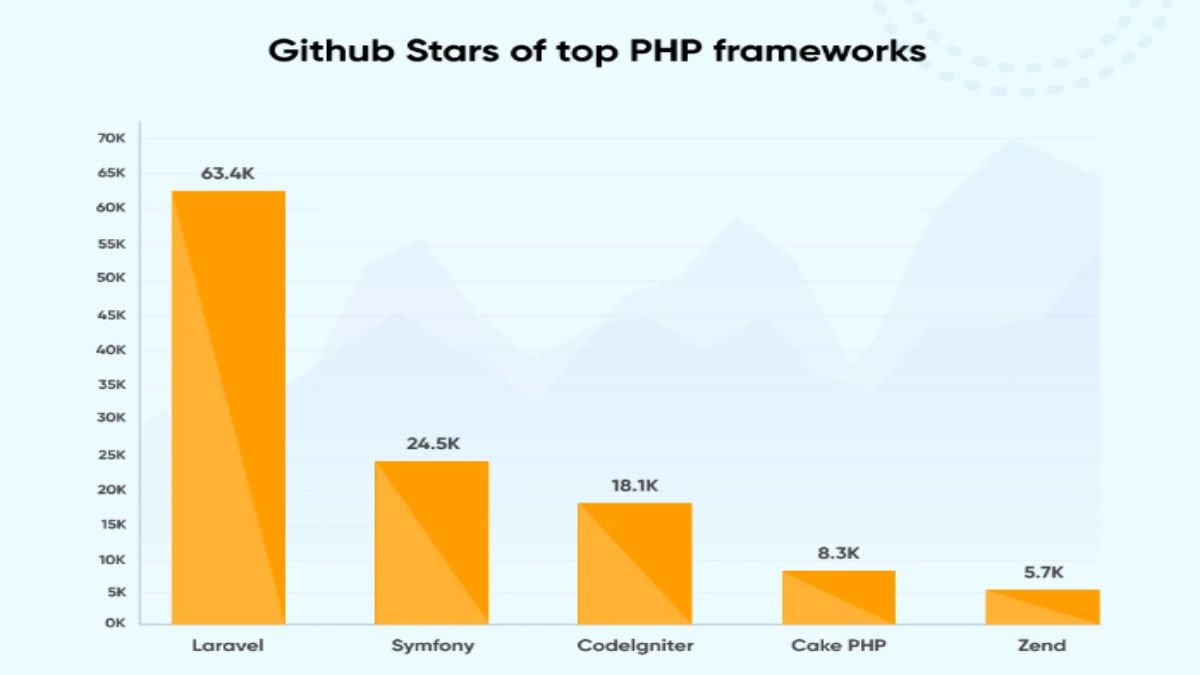Introduction
In the ever-evolving world of web development, selecting the right PHP framework is crucial for building efficient, maintainable, and scalable applications. Among the myriad of options available, Laravel has consistently stood out as a top choice for developers. However, frameworks like Symfony and CodeIgniter also offer unique advantages. This guide delves into a comprehensive comparison of Laravel vs Other PHP Frameworks to help developers make an informed decision.
Understanding PHP Frameworks
PHP frameworks are pre-built collections of code that streamline the development process by providing reusable components and tools. They help developers avoid redundant coding tasks, ensure code consistency, and adhere to best practices. Choosing the right framework can significantly impact the development speed, application performance, and long-term maintainability.
Laravel: The Modern PHP Framework
Laravel is a robust, open-source PHP framework designed for building modern web applications. It follows the Model-View-Controller (MVC) architectural pattern and emphasizes elegant syntax and developer productivity.ProCoders
Key Features
-
Blade Templating Engine: Offers a clean and intuitive syntax for creating dynamic web pages.
-
Eloquent ORM: Provides an elegant ActiveRecord implementation for database interactions.
-
Artisan CLI: A command-line interface that streamlines repetitive tasks.
-
Built-in Authentication & Authorization: Simplifies user management and security implementations.
-
Extensive Ecosystem: Includes tools like Laravel Forge, Envoyer, and Nova for deployment and administration.Sanmark Solutions+7ProCoders+7SynapseIndia+7
Laravel’s rich feature set makes it suitable for a wide range of applications, from small projects to large-scale enterprise solutions.
Symfony: The Enterprise-Grade Framework
Symfony is a flexible and scalable PHP framework known for its robustness and modularity. It’s particularly favored for building large-scale enterprise applications.Sanmark Solutions
Key Features
-
Reusable Components: Allows developers to use individual components as needed.
-
Twig Templating Engine: A fast and secure template engine for PHP.
-
Doctrine ORM: A powerful and flexible ORM for database management.
-
Extensive Documentation: Comprehensive guides and resources for developers.
-
Long-Term Support: Offers extended support for enterprise applications.ProCoders
While Symfony has a steeper learning curve, its flexibility and scalability make it ideal for complex, high-performance applications.Toxigon+3Sanmark Solutions+3ProCoders+3
CodeIgniter: The Lightweight Contender
CodeIgniter is a lightweight and straightforward PHP framework known for its speed and simplicity. It’s an excellent choice for developers seeking a minimalistic approach without compromising performance.Wikipedia
Key Features
-
MVC Architecture: Follows the traditional Model-View-Controller pattern.
-
Minimal Configuration: Requires minimal setup, allowing for rapid development.
-
Built-in Libraries: Offers a set of libraries for common tasks like form validation and session management.
-
Clear Documentation: Provides easy-to-understand guides and resources.
-
Lightweight: Has a small footprint, ensuring fast performance.ProCodersWireFuture
CodeIgniter is best suited for small to medium-sized projects where simplicity and speed are paramount.
Comparative Overview
| Feature | Laravel | Symfony | CodeIgniter |
|---|---|---|---|
| Architecture | MVC | MVC | MVC |
| Templating Engine | Blade | Twig | None (uses PHP) |
| ORM | Eloquent | Doctrine | None |
| CLI Tool | Artisan | Console Component | CLI |
| Learning Curve | Moderate | Steep | Easy |
| Community Support | Large and Active | Strong and Professional | Smaller but Dedicated |
| Use Cases | Web Apps, APIs, E-commerce | Enterprise Applications | Small to Medium Projects |
Performance and Scalability
-
Laravel: Offers moderate performance; can be optimized with caching and other strategies.
-
Symfony: Designed for high performance; suitable for large-scale applications.
-
CodeIgniter: Excels in speed due to its lightweight nature; ideal for performance-critical projects.ProCoders
Security Features
-
Laravel: Provides built-in protection against SQL injection, CSRF, and XSS attacks.
-
Symfony: Highly secure with robust authentication and access control mechanisms.
-
CodeIgniter: Offers basic security features; advanced measures require manual implementation.WireFuture
Ecosystem and Community Support
-
Laravel: Boasts a rich ecosystem with numerous packages and a large, active community.
-
Symfony: Features reusable components and is supported by a strong, professional community.
-
CodeIgniter: Has a smaller ecosystem but is backed by a dedicated community.ProCodersWireFuture+1ProCoders+1
When to Choose Each Framework
| Project Type | Recommended Framework |
|---|---|
| Small to Medium Projects | CodeIgniter |
| Enterprise Applications | Symfony |
| Rapid Development & Prototyping | Laravel |
Conclusion
Choosing the right PHP framework depends on the specific requirements of your project. Laravel offers a balance between ease of use and powerful features, making it suitable for a wide range of applications. Symfony provides flexibility and scalability, ideal for complex enterprise solutions. **Code
